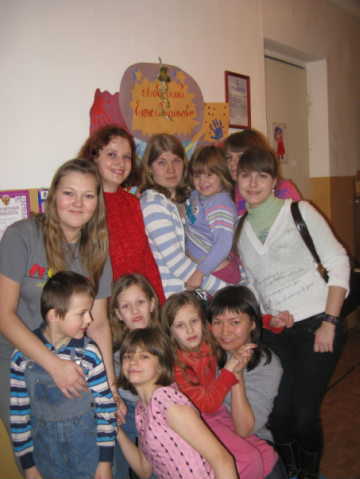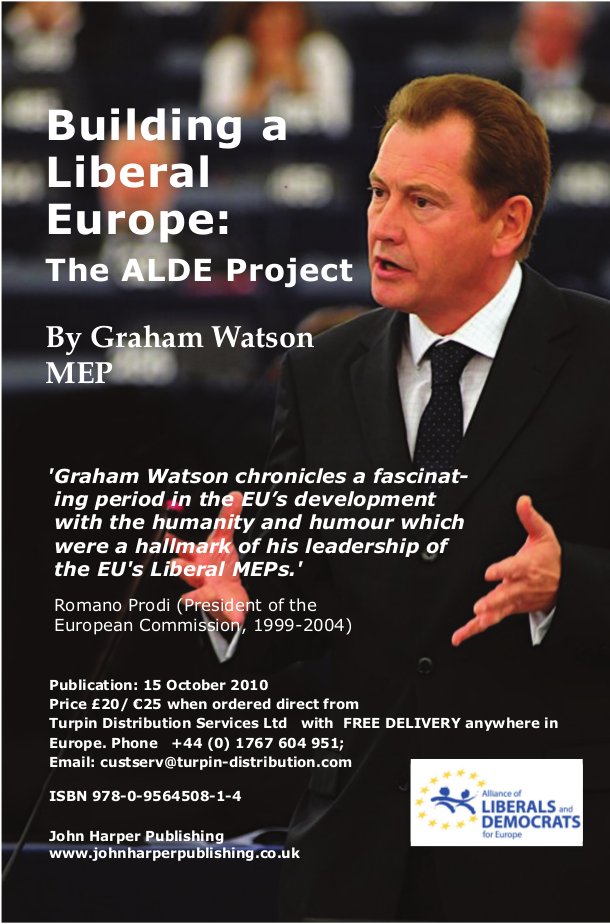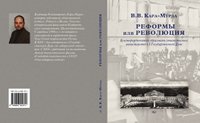Liberal International launches Liberal Manifesto 2017 in Russia
The event was held in Yabloko’s office
Press Release, 14.10.2017
Russia was the first country to launch the Liberal Manifesto 2017, a document reflecting the goals of virtually all the liberal parties in the world. Representatives of the Liberal International (LI) arrived in Russia to present the Manifesto in Russia. The event took place in Moscow, in the conference hall of the Yabloko party office, the only Russian party that is a full member of LI.
Yabloko Chair Emilia Slabunova, who signed the Liberal Manifesto in Andorra on behalf of the party at the LI 70th Congress in May this year, opened the event.
Videos of all the speeches are here.
Slabunova noted that the fact that such a large political family of Liberal International, comprising 97 parties from 67 countries, had consolidated its assessment of the developments in the world inspired respect. This demonstrated openness, readiness for dialogue, negotiability and respect for each other, Emilia Slabunova stressed.
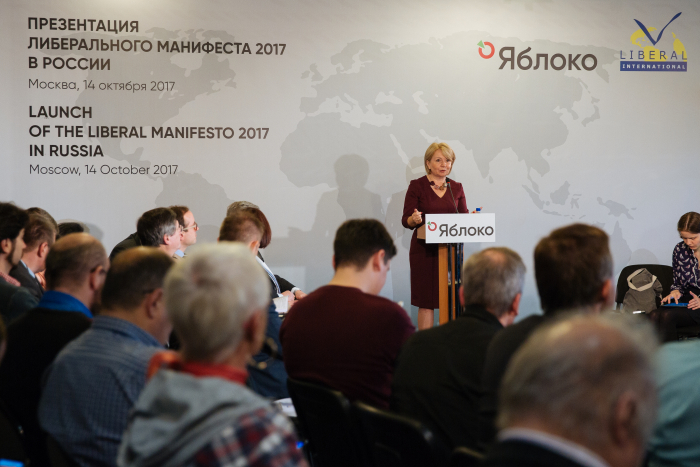
Emilia Slabunova
“This is possible only thanks to joint values, as all parties of the Liberal International are like-minded people,” she emphasised. “Our party realises its responsibility and considers that it should be expressed in active promotion of liberal ideas and values in the Russian society.”
“I think that the time will come in the political life of Russia when these values will become the basis for political actions,” Slabunova concluded.
Secretary General of the Liberal International Emil Kirjas noted that the introduction of the Manifesto into Russia virtually launched its promotion in different countries. “I am very glad that we started with Moscow, because if we do not win the hearts of Russians, we will not be able to achieve any goals in the future,” the politician said.
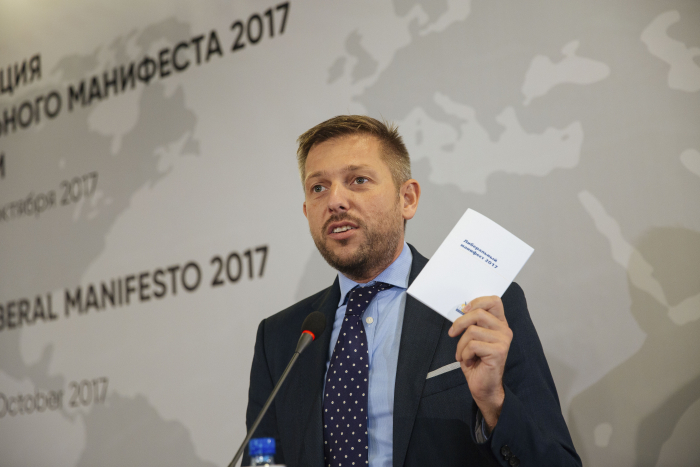
Emil Kirjas
President of the Liberal International Juli Minoves Triquell, failed to get a Russian visa to personally attend the event, so he addressed the audience in Moscow in a video message. He said that “one of the threats of liberalism in the modern world is authoritarianism, which always goes hand in hand with populism. The task of liberals is to fight these trends.”
“Democracy can not be given one precise definition. For us human rights are an indispensable condition for democracy. Democracy and human rights are universal. They should not be something special, peculiar of only some particular region or culture. The Liberal Manifesto imposes on us an obligation to fight for our values of democracy and uphold human rights,” he said.
Hans van Baalen, MEP, President of the Alliance of Liberals and Democrats for Europe (ALDE) party and LI President of Honour, also sent his video address to those who came to the event. He said that the fact that Yabloko came second after the ruling party in the Moscow local elections demonstrated that in the end the liberal forces would prevail. Hans van Baalen was banned by the Russian authorities from entering Russia.
Grigory Yavlinsky, LI Nominal Vice President, Chairman of the Federal Political Committee of the Yabloko party and Yabloko presidential candidate for 2018 elections, drew the attention of the audience to the fact that Russia’s policy contradicted all the ten goals set forth by liberals in the Manifesto: ensuring equal rights for all and protecting human rights, strengthening democratic institutions, protecting freedom of information, fostering, extending and promoting education and ensuring access to health care, securing sustainability of global growth, promoting technological advances, supporting trade and investment, supporting controlled migration, and strengthening of international peace and cooperation.
Yabloko leader intends to run in the presidential election in order to change the situation. Yavlinsky noted that ending the war with Ukraine and Syria, normalisation of Russia’s relations with the world, creation of the institute of private property, which is now virtually non-existent in Russia, establishment of the institute of independent court, as well as priority of the development of education and health care were key issues of his presidential programme.
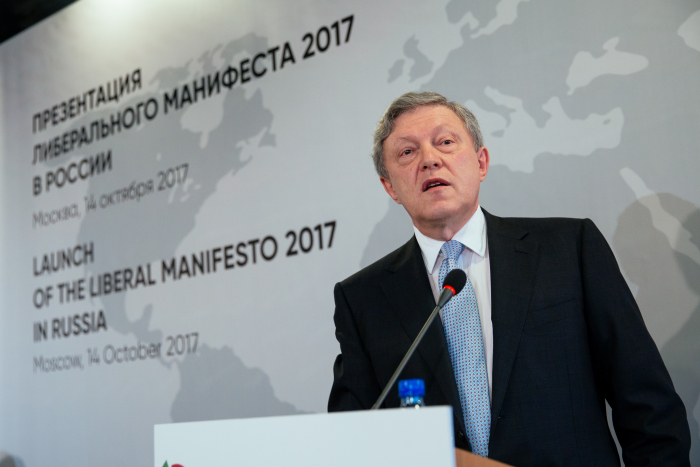
Grigory Yavlinsky
Yavlinsky said that such a programme should help to “avoid the historical defeat of Russia.” The leader of Yabloko called the policy of Vladimir Putin “a break with reality and the counterposition of himself to the historical development.”
Foreign participants of the conference in their speeches wished Yabloko’s presidential candidate of Yabloko a successful presidential campaign next year. Karl-Heinz Paqué, Vice President of Liberal International, Deputy Chairman of the Friedrich Naumann Foundation for Freedom, Chair of International Economics Otto-von-Guericke University of Magdebourg, congratulated Yabloko on winning Moscow municipal elections in September. Paqué noted that German liberals from the FDP party were also successful the German election in September and were able to return to the Bundestag.
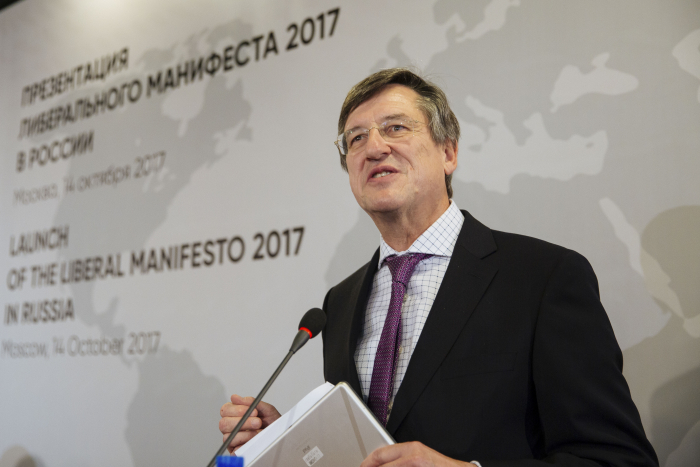
Karl-Heinz Paqué
In his speech Karl-Heinz Paqué once again called for promotion of the liberal values reflected in the Manifesto in order to withstand the new threats of the modern world, including populism embodied by Donald Trump.
Astrid Thors, Vice President of Liberal International, Organisation for Security and Cooperation in Europe (OSCE) High Commissioner on National Minorities (2013 – 2016), MEP (1996 – 2004), member of the Parliament of Finland (2004 – 2013) and the Finnish Minister of Migration and European Affairs (2007 – 2011), spoke in her video address about the forces combatting liberalism. “Liberalism is the enemy of people and systems where we see only the enrichment of those in power”. Astrid Thors also could not get her visa to Russia.
Journalist Igor Yakovenko said that in Russia, the state television channels form the image of a liberal as an “man-eater” and even the word “liberal” was “not merely a curse, but the most dirty curse” in the state TV channels. Yakovenko suggested to the liberals to proceed from the fact that their “distance is a marathon, but they also must be ready for a rapid sprint”. According to the journalist, liberals in Russia need even greater patience and courage than their colleagues in the European countries.
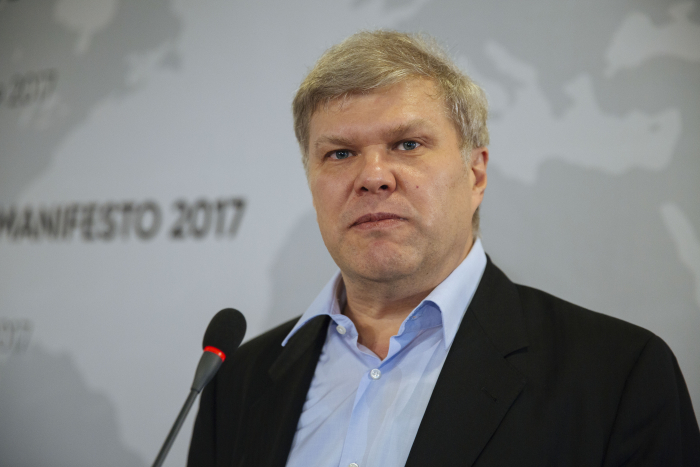
Sergei Mitrokhin
Sergei Mitrokhin, former Chair of the party, member of Yabloko’s Federal Political Committee and Chairman of the Moscow branch of the Yabloko, said that although Russia is not the most anti-liberal country, the main struggle between liberalism and the forces opposing it had been happening in Russia. Mitrokhin argued with Igor Yakovenko that Vladimir Putin’s regime had no ideology. Accroding to Mitrokhin, the regime ideology is eclectic, but has a common denominator – anti-liberalism, and this brings it together with fascism, Stalinism and other misanthropic ideologies.
Sergei Mitrokhin quoted Prof. Loren Graham, who said in the recent speech addressing the Russian elite that, despite the fact that the Russian people was one of the most talented nations, the system created in Russia was the strongest in the world to counteract talent and ingenuity. “In the age of new technologies, the preservation of this situation leads to the final degradation and backwardness of our country. Without liberalism, Russia has no future, all those who struggle against liberalism are struggling against Russia’s prospects,” Sergei Mitrokhin said.
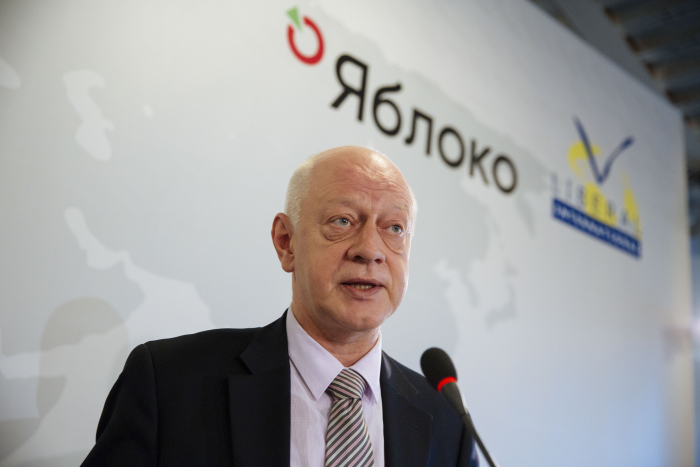
Boris Makarenko
Boris Makarenko, Professor of the Department of Political Science of the Faculty of Social Sciences of the Higher School of Economics was generally very positive of the Manifesto, however he noted that the Manifesto failed to mention the allies of the liberals. “Unfortunately, liberals have always had a sin of arrogance. Fascism in 1930s, like the present populism, does not rise in the world according to the will of the poorest and most destitute, the latter will rather vote for the left-wing. The rise of populism and the challenge comes from not the absolute losers but from the relative losers: they live in a village, or in a small city, they work in an unpromising industry. These people are standing behind the challenges to liberalism, as it was before during the rise of fascism. Liberals must reach to the losers, and seek allies for common values,” he said.
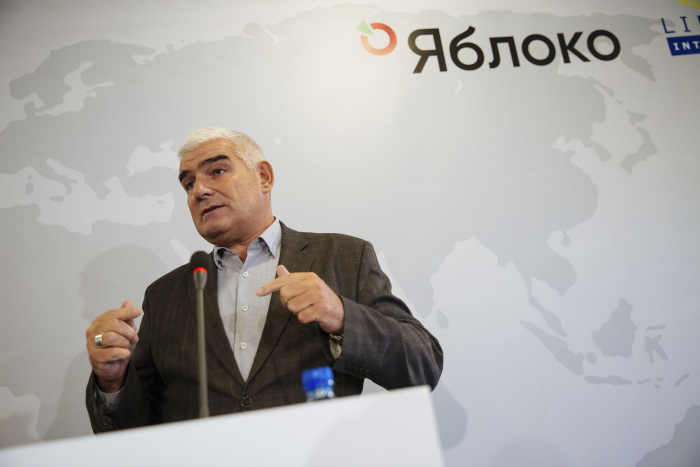
Andrei Ryabov
Andrei Ryabov, Editor-in-Chief of the “Mirovaya Ekonomika I Mezhdunarodniye Otnosheniya” (The World Economy and International Relations) journal and political scientist, spoke about the issues that the modern society had to solve relying on the principles set forth in the Manifesto, such as the emergence of a new social inequality in the process of globalisation, the interaction between the rights of the individual and the rights of minorities, the problem of tolerance boundaries, the attitude to those political regimes that openly blackmail the world community with a nuclear threat, and others.
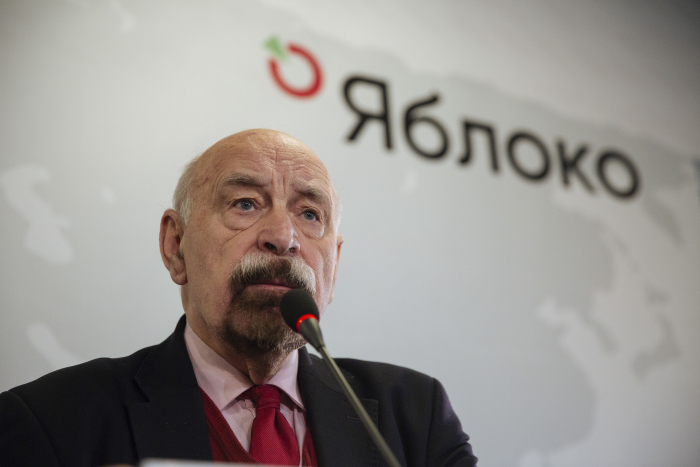
Valery Borschyov
Valery Borschyov, member of Yabloko Federal Political Committee, member of the Moscow Helsinki Group, defender of human rights and Soviet dissident, said that some liberal laws developed by Yabloko continued working in Russia, and the law on public control in places of forced detention was among them. At the same time, many Russian prisons practice torture, and the overall human rights situation in our country has been deteriorating every year.

Sergei Lukashevsky
Sergei Lukashevsky, Executive Director of the Acad. Sakharov Centre, spoke about human rights. He noted that it was not enough to state their fundamental importance within the framework of liberalism, it was necessary to ensure that these values become decisive in the political solutions and steps that liberal parties offer in political practice.
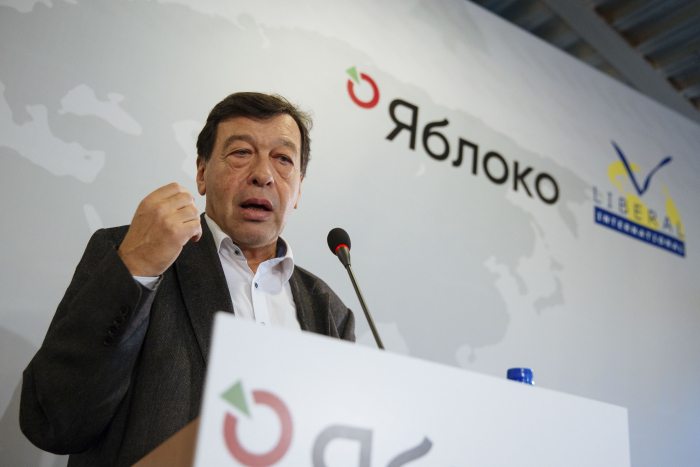
Yevgeny Gontmakher
Yevgeny Gontmakher, Professor of the Higher School of Economics and chief researcher in the Institute of the World Economy and International Relations, proposed to divide all existing regimes into two categories: the first one where people control the state in one way or another, and the second where the state uses people as expendables. He said that Russia referred to the second type, as it had been “conducting antisocial and anti-humanitarian policies for many years.” However, according to Gontmakher, a system where a person is a prime value, is prone to paternalism. The recipe for this is liberalism, which resolves social policy issues not at the populist level, but with the tools of developed democracy.
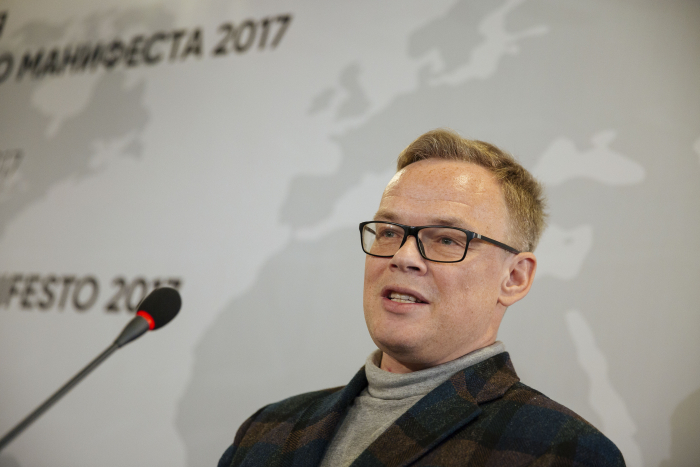
Sergei Zair-bek
Sergei Zair-bek, leading expert of the Institute of Education of the Centre for Social-Economic Development of the Higher School of Economics, called the section of the Manifesto devoted to education one of the key sections. He noted that liberalism is cultivated in an educated society and can not exist in the uneducated one. According to him, an educated society does not mean simply a large number of textbooks and good results of the country in comparative international studies, but a public request for the objectivity of its history, respect for its culture and cultures of other peoples, critical attitude to information and constant self-development.
Education should contribute to the promotion of liberalism, primarily through equal access to quality education, Zair-bek said.
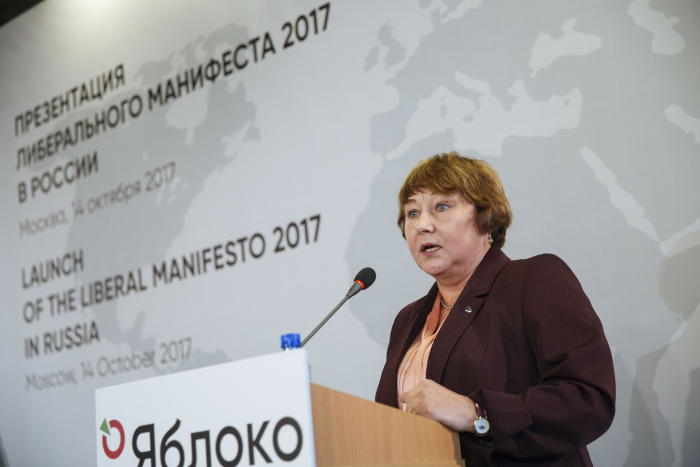
Galina Mikhaleva
Galina Mikhaleva, Chair of the Yabloko Gender Faction, Professor of the Russian University for Humanities (RGGU), spoke about the rights of women, stressing that the Manifesto paid special attention to these rights. “Our idea is like this: there should be solidarity of men and women in the general solution of problems in politics, the economy of family life. It is very important that Liberal International put down the need to observe the rights of women in the Manifesto, because not only women but also men should fight for equal rights and opportunities,” she stressed.
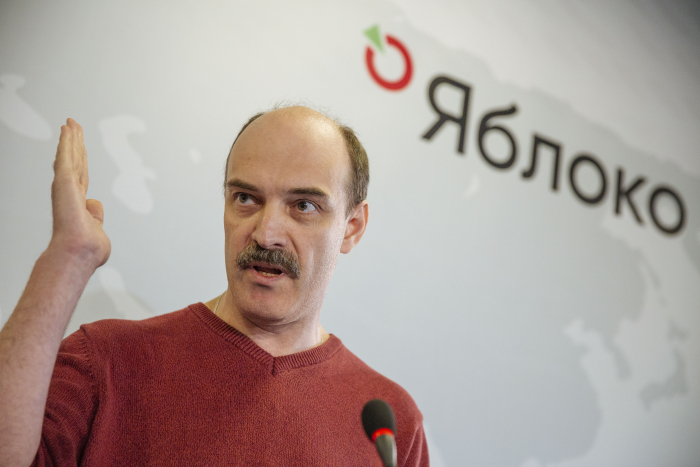
Alexei Titkov
Alexey Titkov, Senior Lecturer of the Department of Political Science of the Faculty of Social Sciences of the Higher School of Economics, spoke about the need for Yabloko to seek allies among those who did not share many liberal values. “The political agenda is changing. The movement for the return of democracy and social policy is intensifying. We have already seen something like a coalition of the most diverse forces [during the rallies] in Bolotnaya Square [in Moscow in 2011 – 2012]. Russia demonstrates the rise of the same world’s populist wave, but it gives a chance for democratisation. And Yabloko has to think how in such a paradoxical situation to unite with those who fight, but think differently,” he said.
In the discussion, Grigory Yavlinsky recalled that “the Yabloko party was created as a united party, we did not unite only with rogues and thieves.” Now it is simple to define the allies of the party. According to Yavlinsky, “if one is against that people are killed by tens of thousands in the Donbass”, he is our ally! “If one is against participation in a foreign civil war [in Syria] and bombing of Muslims? You are our ally … Such are the principles now,” Yavlinsky noted.
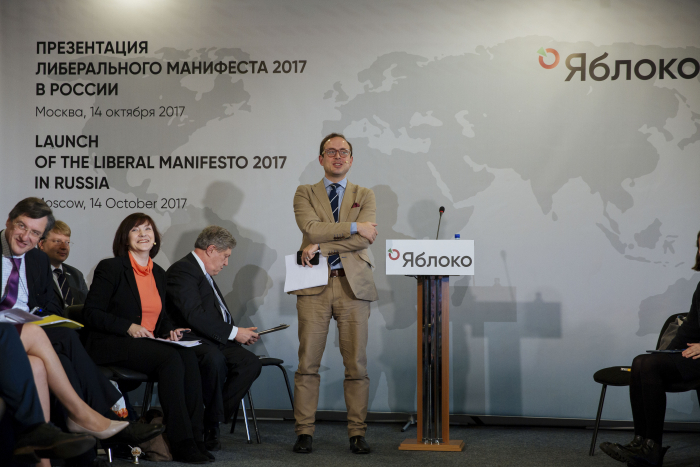
Moderators of the event Olga Radayeva, head of the Yabloko International Relations Department, and Julius von Freytag-Loringhoven, head of the Moscow Bureau of the Friedrich Naumann Foundation
In concluding remarks, LI Secretary General Emil Kirjas assured his Russian colleagues that liberals around the world did not need an isolated Russia, but needed Russia integrated into the world. “We do not want Russia to be under sanctions, we want Russia to inspire us,” the politician said.
“Russia will be free. It will happen soon. We will make every effort to this,” Yabloko Chair Emilia Slabunova said in her turn.
Posted: October 17th, 2017 under Overcoming Stalin's Legacy, Russia-Eu relations, YABLOKO and the International Liberal Family.






